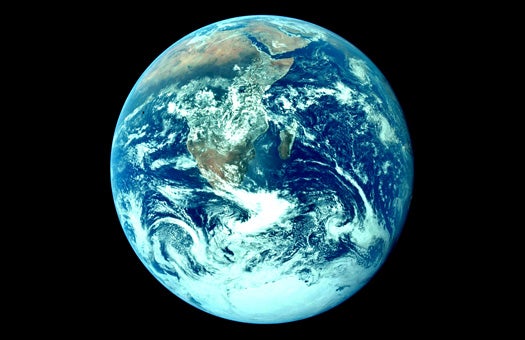Warming Oceans May Cause the Earth to Tilt
Global warming and expanding oceans, beyond immediate effects on the surface of our planet, may even cause the earth's axis to shift

Human activity has widely affected our planet, reshaping surfaces, moving or extinguishing species, and warming the air and water. Now scientists say our reach has been extended even further — warming oceans may even start to shift the Earth’s axis of rotation.
Previously, the effect of warmer water temperatures was thought to be negligible and not strong enough to tilt the earth. But in a new study in Geophysical Research Letters, researchers have found that global warming and the resultant expansion of the oceans could actually shift our rotational axis significantly.
Warming causes our axis to shift because warmer water takes up more space than cooler water, and actually expanding upward and outward as it warms. Increased water volume pushes up onto shallow continental shelves, redistributing weight on the planet and causing the Earth to tilt. According to the report, the north pole of our rotational axis will travel around 1.5 centimeters a year in the direction of Alaska.
That’s not much, in the context of other forces and movement. (The earth wobbles around as much if not more under other influences, including seasonal changes, melting glaciers, and retreating ice sheets.) But it is significant enough that the effect of warming should be taken into account when monitoring the way our axis moves in the future, the researchers report. Moreover, it represents just how strong the effects of human caused global warming can be — even moving the planet itself.
[via New Scientist and Discovery News]